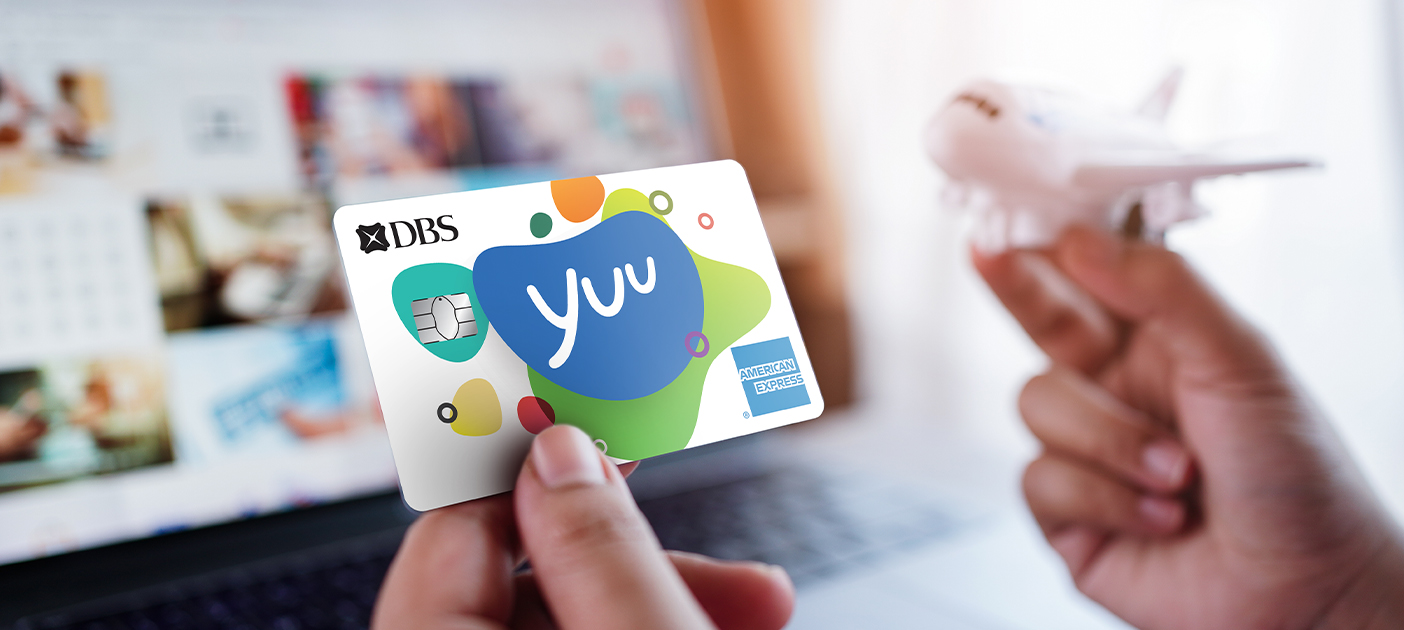
Pros
Here are 7 benefits of credit cards.
Sign-up promotions
Look out for sign-up promotions like physical gifts (e.g. travel luggage bags), store credits at a particular merchant, bonus miles or even direct cash rebates. These usually come with terms and conditions (T&Cs), such as meeting a required minimum spend on the card within a fixed time frame after activating it.
Convenience
Considered a type of contactless digital payment these days, credit cards provide convenience in your everyday transactions. No more worrying about queues at the ATM, or whether you have sufficient cash in your wallet when you head out for the day.
By making payments with your credit cards, you are able to make online purchases with ease, anytime, anywhere.
Read more: 6 benefits of going cashless
Rewards or rebates
One of the perks of having a credit card is that you are often able to make the most of your dollars spent. How?
Credit cards often offer rewards in 3 broad categories – cashback, rewards points, or air miles. There are also tie ups with merchants to provide promotions like 1-for-1 dining offers or discounts when you pay with a specific credit card.
If you play your cards right (quite literally!), you could be one of those flying for “free” due to air miles redemptions, redeeming staycations and/or meals. All this, without any extra spending on top of your usual expenses.
Now, you may be tempted to cast your net wide and apply for every type of card available to “get all your bases covered”. However, “the more, the merrier” does not apply in this case.
It helps to remember that there is often a minimum spend as well as other requirements that must be met before you are eligible to earn the rewards. In other words, spreading your spending too thinly across different cards may result in you not being able to maximise the benefits you can potentially get.
One strategy to consider is to focus on the type of rewards that are most relevant to you. This means taking note of your personal spending patterns and then consolidating your usage on just one or two cards.
If you are an avid traveller, chalking up miles might be the most applicable option for you. On the other hand, if you spend a lot on groceries or other daily items, a rewards card like the DBS yuu Card or POSB Everyday Card might be a better choice. You can also consider cashback credit cards if you are more focused on getting spending rebates.
Tip: Ensure you familiarise yourself with any T&Cs that come with the card so that you can make the most out of it.
Ease of access to credit
Having a credit card offers you easy access to a line of credit, which comes in handy especially when you need to make big-ticket purchases. (These are the best for chalking up points and miles at one go).
For example, if your car has been damaged and you need to send it in for repairs, which may require a significant amount in upfront payment, you can charge the cost to your card first to make use of the interest free period.
When your salary comes in or your emergency funds become available you can then pay it off (insurance claims tend to take longer to be processed). In this case, having a credit card provides an easy line of credit to tide you through the emergency.
You can also make use of DBS payment and instalment plans to split your big-ticket purchases and bills into smaller, interest free monthly instalments while still earning DBS credit card points.
With My Preferred Payment Plan, you can split your existing credit card purchases into 3 months of interest-free instalments. When shopping at DBS/POSB credit card participating online and retail outlets, you can choose to spread your big-ticket purchases into smaller, interest free instalments of up to 24 months, subject to T&Cs. This can help ease your monthly cashflows.
Read more: Use your credit card to your advantage
Find out more about: Payment and Instalment plans for your credit card

Better financial planning
Being able to track your expenses goes a long way in helping you budget well. Each credit card transaction will be reflected in your monthly card statement and updated quickly on digibank, making it easy to monitor your spending habits.
The digital financial advisory tool in DBS digibank reflects a detailed breakdown of your spending and their categories. Use it to have a consolidated overview of your financial habits, financial wellness and any potential money gaps that need to be addressed.
Safety
In contrast with cash, credit cards provide consumer protection against fraud and theft. In the unfortunate event that your wallet is stolen or lost, all the cash inside would certainly be gone.
With credit cards, there are protective measures you can put in place, like opting to receive a notification each time a transaction is charged to your card. If unauthorised charges are made, you can call the card company immediately to inform them of the transaction and it can usually be waived. After this, the credit card issuer will put a hold on the said card to prevent any further transactions from going through.
Many credit card companies also monitor suspicious activity on your credit cards and will inform you if they detect any unusual or suspicious transactions being made.
On top of this, some cards come with purchase protection, extended warranties, and protections against identity theft.
Build personal credit score
When you apply for a loan, financial institutions refer to your credit report to help determine whether to approve it, at what rate and the loan amount. Kept by the Credit Bureau of Singapore (CBS), this credit report is based on your credit payment history on a 12-month rolling basis.
By using your credit card and paying your bills in a timely manner, you are adding to the length of your credit history and reliability in terms of repayment. This in turn builds your credit score and will help in your future loan and job applications too.
Read more: Why is my credit score important?
![]()












